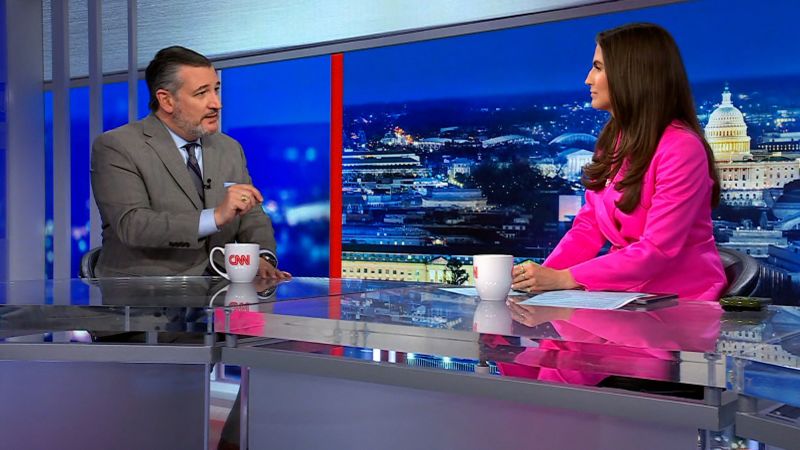Republican Sen. Ted Cruz recently sparked controversy by refusing to say whether he would unconditionally accept the results of the 2024 election, implying that he would not accept the outcome if he believed there was voter fraud. Cruz defended his stance by pointing out that the election system allows for challenges and has the potential for fraud to be proven. This comes after Cruz objected to Arizona’s election results on January 6, 2021, and baselessly suggested that the 2020 election was riddled with fraud.
Cruz is not the only prominent Republican to cast doubt on election results. Former President Donald Trump, who is considered the party’s presumptive presidential nominee, stated that he would only accept the 2024 election results if they were “honest.” Other Republicans, including Rep. Elise Stefanik, Sen. J.D. Vance, and Sen. Tim Scott, have also expressed skepticism about the legitimacy of past election results, with some stating that they would not have certified the 2020 election results had they been in positions of power.
In addition to his remarks on election results, Cruz also defended conservative Justice Samuel Alito in response to criticism over flags displayed at Alito’s homes. Cruz argued that there is a concerted effort by Democrats to delegitimize and demonize the court, pointing to attacks on both Justice Alito and Justice Clarence Thomas. He reiterated Alito’s justification for the displays, stating that they were a response to profane signs in the neighborhood attacking Alito’s wife.
Cruz’s comments have reignited concerns about the future of democracy in America, with many critics arguing that casting doubt on the electoral process undermines the foundation of democracy. By refusing to commit to accepting election results regardless of the outcome, Cruz and other Republicans are fostering an environment of distrust and polarization that could have lasting consequences for the country. The focus on voter fraud and election challenges could further erode public confidence in the democratic process and create a cycle of controversy and uncertainty surrounding future elections.
As the 2024 election approaches, the rhetoric and actions of prominent Republicans like Cruz will likely play a significant role in shaping the political landscape. The refusal to accept election results unconditionally raises questions about the future of democracy in America and the potential for further polarization and division within the country. Cruz’s defense of Justice Alito and criticism of Democratic efforts to delegitimize the judiciary also highlight the deep political divisions that continue to define American politics and threaten the functioning of democratic institutions. It remains to be seen how these issues will impact the 2024 election and the country’s democratic norms in the years to come.


